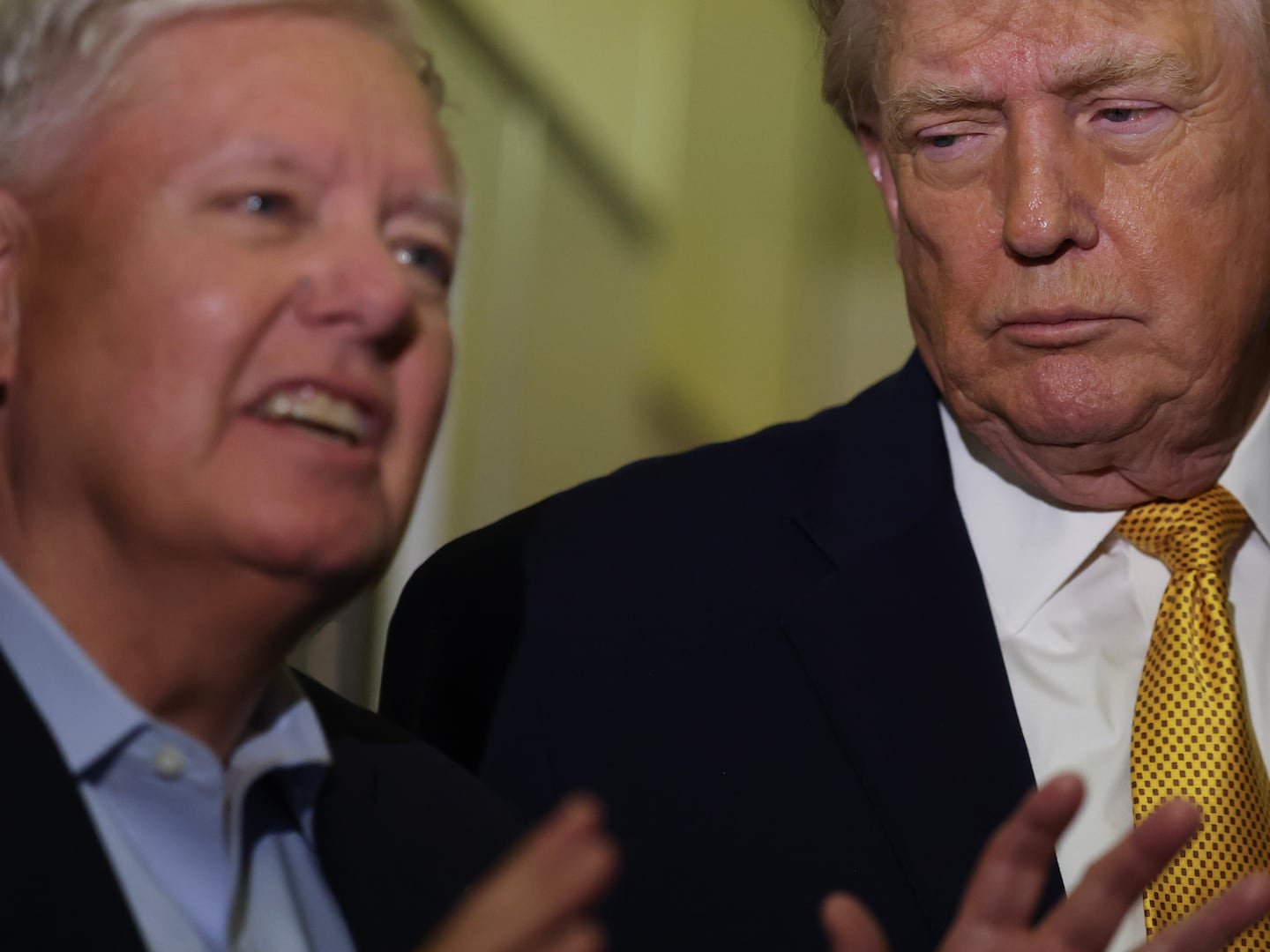You cannot hide from Steve Coll. Better men than you have tried. The world’s most elusive, powerful networks have failed.
Take the Central Intelligence Agency. Spies and spymasters spend their lives in the wind, dealing in top-secret information. Yet what emerges from Ghost Wars, Coll’s 2004 Pulitzer Prize–winning history of the agency, is the full measure of the CIA—its personalities, successes, and follies—as Coll made visible hitherto hidden links between dozens of covert agents and Afghan allies as they went about their hunt for radical Islamists. Or take the hunted militants, who were themselves unknown entities until a September day in 2001. How, exactly, do you write a biography of the leader-in-hiding of a shadowy terrorist group? In 2008, Coll showed readers how with The Bin Ladens, connecting the dots that made up a sprawling global family, at whose center sat a void named Osama.
“The CIA obviously keeps a lot of secrets,” says Coll, whose clear, calm voice is an asset amid the uncertainties he’s used to dealing with. “But ExxonMobil is, in many ways, a more closed system by design. It’s very disciplined.”
And there you have it: ExxonMobil is perhaps the most walled-in organization in the world. Its sheer size and wealth—it was the largest publicly traded company in 2011 by market capitalization—make it arguably more powerful than either the CIA or al Qaeda. It grew out of the ashes of John D. Rockefeller’s Standard Oil when it was split into 34 companies in an antitrust suit in 1911; one of the successors became Esso, later renamed Exxon, which merged with Mobil in 1999. During the first year of the merger, it earned $228 billion in revenue, more than the gross domestic product of Norway. If it were a country all its own that year, it would have been the world's 21st largest economy.
The fact that its treasures lay buried deep beneath countries all over the world makes its reach tremendous. The consequences of allowing such a regime to rule without much visibility or accountability are dire, as ExxonMobil’s business affects not only our consumption but our industries, geopolitical influence, health, environment, and human rights. Which makes Private Empire a brutally important book. Coll has forged the biography of “a corporate state within the American state,” as he so aptly calls it.

Take, for example, ExxonMobil’s footprint in Indonesia. In the 1970s, a rebel group called the Gerakan Aceh Merdeka, or “Free Aceh Movement” (pronounced Aah-chay), began extorting Mobil in the region, where it was operating lucrative gas fields. (Mobil was extracting as much as a quarter of its profits from Aceh.) The G.A.M. fought a separatist guerrilla war against the Indonesian National Army, known as the T.N.I. Sections of the T.N.I. were on ExxonMobil’s payroll to provide security, but the soldiers’ brutality against the G.A.M. was well known. As Coll writes, men arrested around the gas fields were tortured, then disappeared, and in the summer of 1998, secret graves were found around the gas fields. In 2007, bones were found inside a safety tank at an ExxonMobil facility, and a survivor of T.N.I. detention identified the company’s Supply Chain Building as a place where soldiers interrogated him and his brother, who had since disappeared.
Exxon’s, and then ExxonMobil’s, strategy throughout the ordeal was remarkably consistent: deny, disclose as little as possible, and minimize visibility.
Their tactics work, not only in Indonesia (a U.S. class-action lawsuit on behalf of Acehnese villagers has stalled for over a decade), but in upstream investments in Nigeria, Equatorial Guinea, Chad, Yemen, United Arab Emirates, Kazakhstan, Russia, Thailand, Malaysia, Australia, Argentina, Germany, the Netherlands, the United Kingdom, Norway, Canada, and the United States.
“I was fascinated by the way that some of these poor countries are trying to develop through contracts with oil companies, like Chad or Equatorial Guinea—in a way they almost induce violence on their own soil, because the riches that can be captured through a successful coup or successful guerrilla war is so substantial,” Coll says. “The proof of the resource curse I think is just indelible.”

The story of ExxonMobil’s global hegemony and foray into unstable regimes is, in fact, quite a recent one. Before the merger, Exxon’s portfolio was rather conservative, with most of its assets in North America and Europe. Lee Raymond, the devoutly Christian, intensely disciplined, and often terrifying (his nickname is "Iron Ass") chairman and CEO of Exxon—then, later, of the new conglomerate—was asked once what disturbed his sleep. “Reserve replacement,” he replied, meaning the expansion of its oil supplies. Profit margins were dropping. They had been kicked out of the Middle East, thanks to rising nationalism, which saw governments seizing back assets from corporations. There was no new oil to be discovered, but there was increasing competition against huge state-owned enterprises from China and Russia.
Lou Noto, Raymond’s more urbane counterpart at the smaller, messier, less scientifically advanced Mobil, also held the view that “easy oil, the easy cost savings—they’re done.” But the majority of Mobil’s reserves, on the other hand, lay in Africa and Asia.
“If you and I were Southern Chadians and we wanted a reason to fight a guerrilla war, winning control of these oil fields would be pretty substantial motivation,” Coll says. “[ExxonMobil] is so much more important than the United States government to the people of Chad, or the people of Akwa Ibom state in Nigeria, or the people of Equatorial Guinea, or Angola. It really is like the 19th century East India Company.” In 2006, ExxonMobil transferred to the government of Chad and its dictator, Idriss Déby, $774 million. The entire U.S. budget for aid—food, AIDS amelioration, counterterrorism—was in the neighborhood of 1 percent of that. “So, if you’re Idriss Déby, who do you care about?”
To be clear, ExxonMobil is not an enemy of the state. It has to a large extent become a finance arm of the Republican Party. It lives by the rules of Washington. It knows it is deeply unpopular, and therefore maintains as low a profile as it can while still asserting as much influence as it can—a cold dish, but it knows what to do in a hot fight. When it wants something from the American government, it asks, cajoles, bullies, and threatens. In 2006, when it wanted a deal to operate oil fields in Iraq, its message to the Bush administration was “Your job is to promote U.S. companies,” a State Department official recalled. Beyond that, it wanted the government to “stay as far away from the oil sector as possible.”
If the U.S. government must be held publicly accountable in at least some measures, why is ExxonMobil granted such a free pass? It's not an understatement to describe the corporation as an independent sovereign—it does not act counter to Washington’s interest, but more parallel and separate. Raymond was once asked whether Exxon would build more domestic refineries to protect the U.S. from shortages. “Why would I want to do that?” he said. “I’m not a U.S. company and I don’t make decisions based on what’s good for the U.S.”

It is in poor and authoritarian countries that ExxonMobil’s secretive discipline can best thrive. “Weak states are the only states that can’t build up their own oil companies to make ExxonMobil irrelevant, so they end up in partnerships with really unattractive governments,” Coll says. “And once you enter into that bargain, I don’t care how you rationalize it—we’re creating jobs, we’re helping the country develop—the truth is that both you and your complicit partner, the authoritarian leader, have an interest in keeping everything as quiet as possible.” When he ran Halliburton, former vice president Dick Cheney said, “The good Lord didn’t see fit to put oil and gas only where there are democratically elected regimes friendly to the United States … We go where the business is.”
There was a time when oil barons indeed went everywhere in their quest for wealth and power. That was the age of tycoons like Rockefeller, Henri Deterding, J. Paul Getty (Coll’s first book, in 1987, was The Taking of Getty Oil), and T. Boone Pickens—all of them, and more, chronicled in Daniel Yergin’s epic The Prize, which won the Pulitzer Prize in 1992 and still remains the most sweeping history of oil and politics. The book makes a cameo in Ghost Wars, in the hilarious and troubling story of Marty Miller, an executive at the relatively (relative to ExxonMobil, certainly) small U.S. oil company, Unocal. After reading The Prize in 1995 and meeting with Yergin, Miller decided to build a pipeline in Afghanistan, which saw the beginning of the end of Russia’s monopoly over oil in the region. It also further complicated America’s relationship with the Taliban. At one meeting Miller invited them to his home in suburban Houston. He had to tie garbage bags over some nude statues (“Why don’t we just put a burqa on them?” said a friend who was helping him), though the Taliban loved Miller’s seven elaborately decorated Christmas trees, and wanted to have their pictures taken in front of them.
“The earlier narrative was a narrative of discovery, of amazing feat. The Prize was really a narrative of the moon era—oil as a moon shot,” says Coll. But Coll grew up at precisely the time when the perception of oil irrevocably changed, from limitless optimism to humanity’s burden. It was the time of disillusionment in Vietnam, the backlash against the military-industrial complex, the Iranian hostage crisis, two oil embargoes, the second Arab-Israeli war in 1973, and the Iranian revolution. “There was just always oil in the background. It’s almost like the sky. Somehow that just seemed like an embedded aspect of the way the world was organized.”
The world today according to ExxonMobil is a direct result of the need to find consistency in dwindling supplies and political uncertainty, defined by Raymond’s “reserve recovery,” desperately holding on to assets in volatile countries. We are in an era of constraint and widespread austerity. We can no longer burn all the fossil fuels we can get our hands on and expect to get away with it.
It is frightening how little Americans can do about the impact of oil. As poor societies get richer, China and India’s appetite for cars and industrial growth will explode. And in this way, Private Empire is a deeply unsettling book. As much as Coll seeks to bring to light all that ExxonMobil needs to answer for—and this is a considerably necessary service—the far more unsatisfying takeaway is that we shouldn’t kid ourselves. “We have a global energy economy that’s going to make oil essential at least for the next 20 years,” Coll says. And as Lee Raymond once remarked, “We see governments come and go.” We need oil to function, at least for now. ExxonMobil is here to stay.





